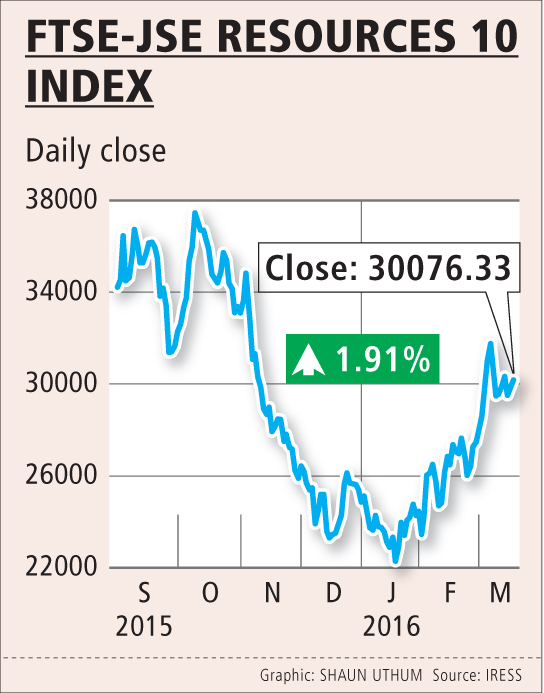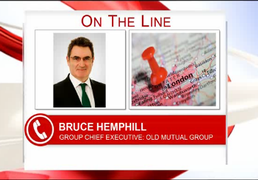AN INTERESTING decision is pending from Judge Pierre Rabie, who is considering a move by law firm Malan Scholes and its employee Hulme Scholes to consolidate their application with one from the Chamber of Mines.
The Chamber of Mines decided early last year to approach the court jointly with the Department of Mineral Resources for a declaratory order over contested empowerment clauses in the Mining Charter.
While the chamber lodged its own application first, CEO Roger Baxter is at pains to point out the chamber and the department are not enemies. Into this mix has come the Scholes application, which seeks to declare the entire charter unconstitutional.
The legal teams representing the chamber and Malan Scholes went head to head in court on Tuesday. Chris Loxton, representing the chamber, laid into the Scholes application, saying it was delaying the chamber’s matter, and would potentially overturn a document that had served as the basis for transforming the industry.
Leon Bekker, counsel for Malan Scholes, said the document should be scrapped.
Judge Rabie postponed matters to ponder whether to allow the consolidation, stopping the chamber’s case in its tracks. If he disallows the consolidation, there would be two cases regarding the charter running separately. This could result in differing outcomes that have bearings on both cases.
Either way, the uncertainty bedeviling the mining sector’s regulatory environment continues.
...
IN BETTER times, engineering group ELB might have faced criticism for carrying a lazy balance sheet. But in such tremulous economic times the value of having a well-reinforced balance sheet becomes apparent to shareholders — especially when being able to peg a dividend payout, despite making operational losses.
A toxic cocktail of subdued commodity prices, a global economic slowdown, a weak rand, prolonged labour strikes, and a low growth rate in SA saw ELB under severe pressure. Sales were down 20% to just more than R1bn, while profit before tax slumped 142% to a loss of R30m in the year to end December. Although ELB posted an interim loss of 51c per share, directors opted to maintain the half-year payout at 30c per share.
With R335m cash on hand (equivalent to almost R12 per share) there is probably justification to make a distribution to shareholders. The cash cushion does not only mean ELB should be able to ride out this lean period, but also that there is enough in the war chest for the company to take advantage of any opportunities that will lock in medium-term growth at decent margins.
• Nick Wilson edits Company Comment ([email protected])

Picture: THINKSTOCK
AN INTERESTING decision is pending from Judge Pierre Rabie, who is considering a move by law firm Malan Scholes and its employee Hulme Scholes to consolidate their application with one from the Chamber of Mines.
The Chamber of Mines decided early last year to approach the court jointly with the Department of Mineral Resources for a declaratory order over contested empowerment clauses in the Mining Charter.
While the chamber lodged its own application first, CEO Roger Baxter is at pains to point out the chamber and the department are not enemies. Into this mix has come the Scholes application, which seeks to declare the entire charter unconstitutional.
The legal teams representing the chamber and Malan Scholes went head to head in court on Tuesday. Chris Loxton, representing the chamber, laid into the Scholes application, saying it was delaying the chamber’s matter, and would potentially overturn a document that had served as the basis for transforming the industry.
Leon Bekker, counsel for Malan Scholes, said the document should be scrapped.
Judge Rabie postponed matters to ponder whether to allow the consolidation, stopping the chamber’s case in its tracks. If he disallows the consolidation, there would be two cases regarding the charter running separately. This could result in differing outcomes that have bearings on both cases.
Either way, the uncertainty bedeviling the mining sector’s regulatory environment continues.
...
IN BETTER times, engineering group ELB might have faced criticism for carrying a lazy balance sheet. But in such tremulous economic times the value of having a well-reinforced balance sheet becomes apparent to shareholders — especially when being able to peg a dividend payout, despite making operational losses.
A toxic cocktail of subdued commodity prices, a global economic slowdown, a weak rand, prolonged labour strikes, and a low growth rate in SA saw ELB under severe pressure. Sales were down 20% to just more than R1bn, while profit before tax slumped 142% to a loss of R30m in the year to end December. Although ELB posted an interim loss of 51c per share, directors opted to maintain the half-year payout at 30c per share.
With R335m cash on hand (equivalent to almost R12 per share) there is probably justification to make a distribution to shareholders. The cash cushion does not only mean ELB should be able to ride out this lean period, but also that there is enough in the war chest for the company to take advantage of any opportunities that will lock in medium-term growth at decent margins.
• Nick Wilson edits Company Comment ([email protected])
























Change: 1.19%
Change: 1.36%
Change: 2.19%
Change: 1.49%
Change: -0.77%
Data supplied by Profile Data
Change: -0.08%
Change: 0.12%
Change: 1.19%
Change: 0.00%
Change: 0.10%
Data supplied by Profile Data
Change: 0.32%
Change: 0.39%
Change: 0.40%
Change: 0.22%
Change: 0.58%
Data supplied by Profile Data
Change: 0.09%
Change: -0.41%
Change: -0.06%
Change: -0.33%
Change: 0.10%
Data supplied by Profile Data